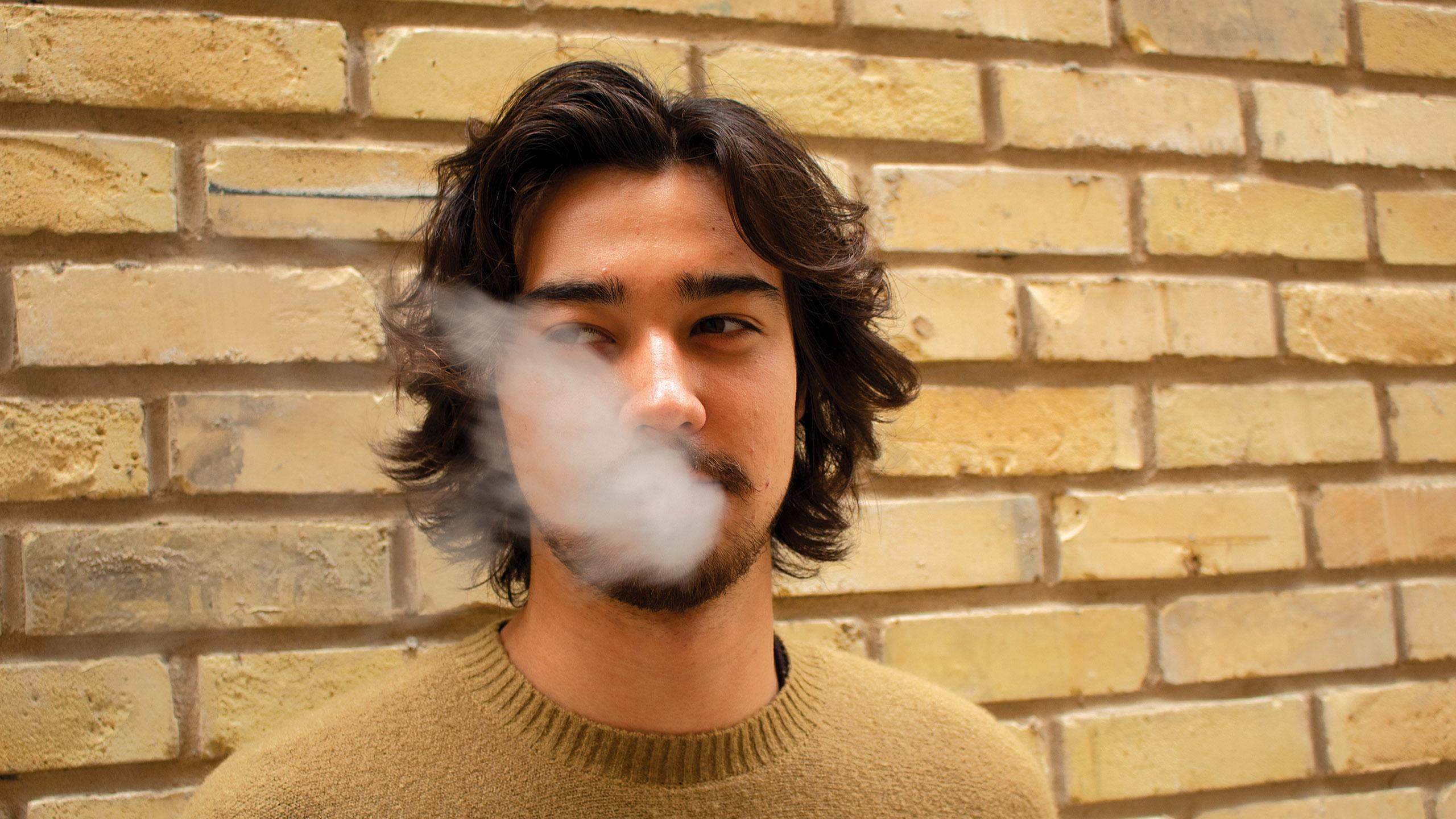By Valerie Dittrich
Alexa Halabar doesn’t vape just because she enjoys it—she depends on it to carry her throughout her day.
The fourth-year politics and governance student started vaping cannabidiol (CBD) after trying over 14 medications for her depression and anxiety, that either didn’t work or came with bad side effects.
On top of that, she suffers from a connective tissue disorder called Ehlers–Danlos syndrome. Halabar’s body doesn’t produce enough collagen to protect her joints, skin or organs, which puts her in an immense amount of pain.
“Vaping CBD was the fastest and most affordable way to handle my symptoms and pain,” she said.
To Halabar, having access to a vape helps her with her mental health and physical pain. However, vaping poses a lot of health risks, many of which are unknown in the long-term. While researchers are unsure of the health risks associated with cannabis-based products, like CBD and THC, the concerns around vaping has significantly.
The Centre for Disease Control (CDC), the U.S. Food and Drug Administration (FDA) out of the United States are investigating “a multistate outbreak of lung injury associated with e-cigarette product use, or vaping.”
The vaping ‘epidemic’ is slowly making its way up north to Canada. One teenager from London, Ont. was put on life support in September after a vaping-related illness. Most recently, a teenager from New Brunswick told CTV News a cautionary tale about vape use after she coughed up a large amount of blood.
“Anytime we inhale a substance into our lungs, there’s potential to cause harm,” said Sarah Butson, a spokesperson for the Canadian Lung Association.
Vaping pens and e-cigarettes, made by companies like Juul and Vype, usually contain nicotine, a highly addictive drug also found in cigarettes.
Batson said that vape products contain things like propylene glycol and vegetable glycerin, among other things, to create inticing flavours, such as cotton candy and bubblegum.
“While some of these products may be safe to consume, they’re not necessarily safe to inhale,” she said. “When we inhale those products, we are heating the liquid, and actually creating new sets of chemicals.”
Chemicals such as nickel, tin, aluminum and formaldehyde are created through the vaping process, and while inhaling the liquid, the user is creating an “aerosol” in their lungs, said Batson.
“You’re creating a chemical cocktail,” she said.
The Lung Association has publicly expressed their concern about vaping and its health risks, most notably calling upon the federal government to take action and protect young people from vaping.
“We as an association have been at the forefront of much of the work on tobacco over the last decade,” said Batson. “We don’t want to see ourselves going backwards.”
For first-year media production student Isabella Thomas, vaping and smoking are off the table—but a lot of her friends vape and she’s worried about them.
“I think the whole thing is generally unhealthy,” she said. “You can increase the amount of nicotine the more you vape, so it makes the addiction worse.”
“People need to take a different approach on it and know how it’s going to affect them in the future.”
Owen Scott*, a fourth-year computer science student, doesn’t vape himself, but he is worried about where users are sourcing their materials from—specifically illegal markets.
“If you can’t get it from a reputable source, it’s like buying food that isn’t checked by the FDA, right? You have zero idea what you’re doing.”
Scott said that since the pods and vape pens are cheaper from an illegal market, students can’t exactly know what’s inside of the pods. “Maybe [they’ll] contain cheap oils that can’t actually be burned. So the second you [inhale] them, it’s coating your lungs.”
He also thinks that the fixation on vaping concerns is a bit “overblown” and should focus on fostering a legal vape market with stricter regulations with more warnings about potential health risks.
For Halabar, she believes the “extreme” concerns around vaping are “a little too much.”
“Yes, vaping isn’t good, but neither is smoking or drinking or processed foods,” she said. She added that there should be stricter policies around vaping, saying it’s “accessible to anyone” and that it’s too easy for students and underage people to buy it.
“When most people buy [vapes], they don’t ask for proof of age or anything like that,” she said.
Halabar says students should be wary when buying these products. “If you vape, do it responsibly.”
*Name has been changed to protect the student’s anonymity.










Leave a Reply